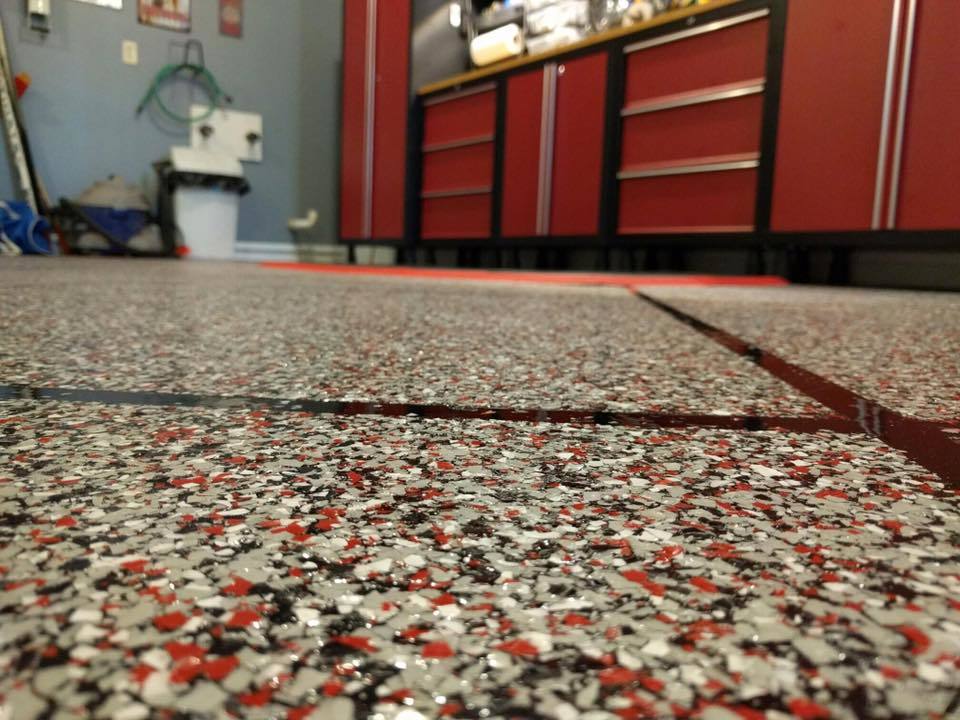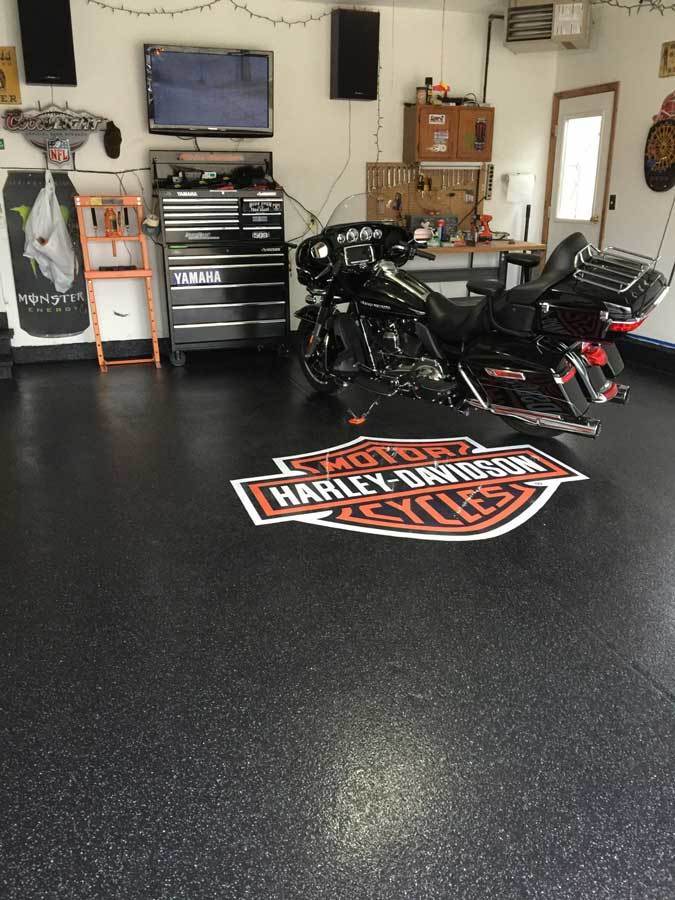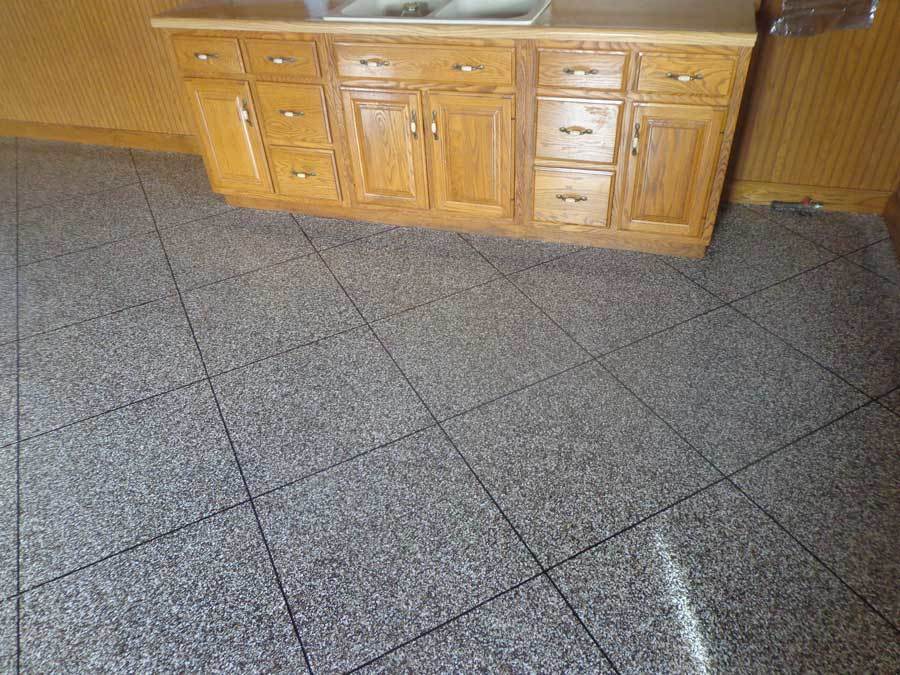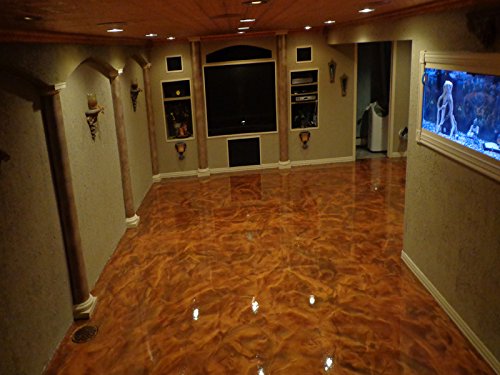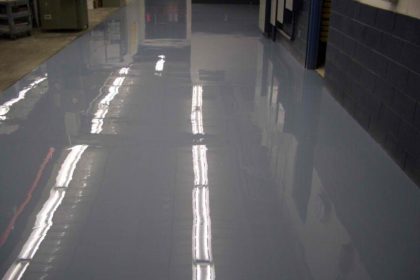
Garage floors often take a lot of abuse from the falling of heavy objects, the scraping of equipment, and the spilling of chemicals. Even putting these issues to the side, the average garage floor tends to be drab and unappealing in its look. For these reasons, many home and business owners choose to lay an epoxy coating over the floors.
The Chemistry of Epoxy Coatings
Epoxy coatings are made from what is called an epoxy resin: a synthetic compound of a resin, which is a sticky substance used in varnish, and a polyamine-based hardener. It is when the two materials are mixed together that an exothermic curing reaction occurs, giving the resin its strength.
There are three types of epoxy: solvent-based, water-based, and 100% solids. The first is provides the most penetration into concrete but is more flammable and can give off fumes or odors. Water-based epoxy is eco-friendly, and the 100% solids epoxy even more so however they aren’t as durable.
The Benefits of Epoxy
Epoxy resins are used in both bonding and coating materials, the former being especially important for its electrical conductivity and the latter for its resistance to heat and abrasions. A floor coating made from epoxy resins can be applied to concrete flooring or even to decorative floors in kitchens and basements. They are also frequently used to coat countertops and the decks of boats.
An epoxy floor coating is thick and adheres right to the surface, giving it a clean showroom finish. The coating itself is resilient to all chipping, scraping, impacting and staining. As a sealant, it can prevent concrete dust from being kicked up in the air through daily use and causing respiratory issues.
Applying a Garage Floor Coating
First of all, owners need to be sure that their garage will benefit in the long run. For example, though a coating is strong, it cannot keep its appearance around sparks and molten metal, and though it is moisture-resistant, it will not stand up well to excessive moisture levels. Moisture vapor from beneath the slab will build up, leading to cosmetic issues like bubbles and blisters in addition to mold and mildew growth.
Those who plan to coat their basement or garage floor have plenty of DIY floor coating kits to choose from, but these are often lower grade products that don’t last. Epoxy contractors cost more, but they have access to commercial-grade epoxy, surface preparation equipment, and experience to do the job.
It is essential to decide what type of epoxy floor would look best in your garage. Although choosing a simple one-color epoxy floor paint option is simple and affordable, it may not be your style. Many homeowners like the look of an epoxy chip or flake floor, and there is also the option of a metallic epoxy floor that looks like marble.
For any epoxy floor coating to last the surface of the concrete must be properly prepared. Any previously applied paints, coatings, or concrete sealers must be removed for proper coating adhesion. The floor must be free of cracks, pitting, spalling, and stains from oil or grease. One must then clean and grind the concrete surface to the profile specified by the epoxy manufacturer. This preparation process is accomplished by using concrete grinders and specialized diamond tooling.
The necessary tools for applying epoxy include a paint tray and liners, rollers, and brushes. Epoxy is mixed in small batches each coat. Epoxy typically has a “potlife” which is the amount of time after mixing that you can work with epoxy before its too hard. Afterward, one can roll the epoxy resin over the surface. Outside conditions need to be right, though; the temperature should be between 70 and 80 degrees, and humidity levels should be low.




























